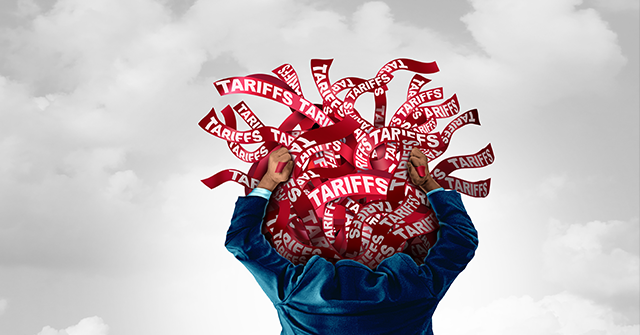The Push and Pull of Tariffs on American Households
One reason economists continue to be surprised by incoming data is that American households are stubbornly refusing to behave the way models expect. In particular, they’re not responding to tariffs with uniform changes in spending. And when they do shift their behavior, the reactions often pull in opposite directions, largely offsetting one another.
A recent YouGov poll asked voters whether tariffs had caused them to make or delay purchases. Only 24 percent said tariffs had incentivized them to buy something. But 27 percent said they had delayed a purchase because of tariffs. And a solid majority—56 percent and 55 percent, respectively—said neither applied to them.
So, not only are most Americans not changing their buying behavior in response to tariffs, but among those who do, the shifts are nearly symmetrical—some buying ahead of tariffs, some holding off, and most doing nothing at all.
The breakdown by income is revealing:
- Among households earning less than $50,000, just 18 percent said tariffs encouraged purchases, while 22 percent said they delayed buying. About 60 percent said neither.
- In the $50,000 to $100,000 range, more households said tariffs influenced them: 32 percent bought ahead, 34 percent delayed, but again, around half did neither.
- For those earning over $100,000, 30 percent made purchases and 31 percent delayed them—once again, offsetting effects.
Americans Are Watching Prices Closely, Especially the Middle Class
But this isn’t due to ignorance or apathy. Americans are paying attention. Fully 58 percent say they are closely monitoring prices because of tariffs. Among middle-income households, that jumps to 65 percent, compared to 55 percent for lower-income and 58 percent for higher-income households.
Tariffs are also leading Americans to cut back—though not dramatically. A slim majority (51 percent) say they’re reducing spending on non-essentials, with modest variation by income:
- 52 percent among lower-income households
- 55 percent among middle-income households
- 53 percent among upper-income households
On the broader question of cutting back overall, the nation is split: 48 percent say yes, 45 percent say no. Again, middle-income households show the strongest reaction (53 percent), followed by lower-income (49 percent) and higher-income (47 percent).
Stockpiling is uncommon. Just 31 percent say they’re stocking up on products because of tariffs. Sixty-four percent say they are not. Still, middle-income households are again the most reactive, with 35 percent saying they’re stocking up—versus 27 percent of lower-income and 34 percent of upper-income households.
Finally, only 28 percent of Americans say they have canceled a major purchase because of tariffs. That number is identical among high- and low-income groups (27–28 percent) but jumps to 36 percent among the middle-income cohort.
In short, real-life consumer behavior is not easy to model. The polling shows that while a majority of Americans say they haven’t changed their buying habits in response to tariffs, the minority who have are split almost evenly between those pulling purchases forward and those putting them off. That helps explain why economists continue to be surprised by incoming data: the behavioral responses are largely canceling each other out, muting the effects they expect to see.
It’s America’s middle class that appears most attuned to the tariffs—and the most likely to react. Middle-income households are paying closer attention to prices and are more likely to stock up and/or cancel major purchases than either lower- or upper-income groups. But even their responses point in opposite directions. For every middle-class household delaying a purchase, there’s another accelerating one. In aggregate, the signal gets lost in the noise.
Read the full article here
